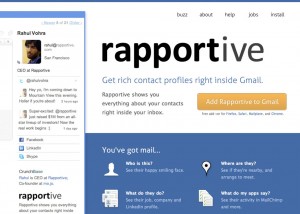eikaiwa iPhone kids Language learning materials online resources personal Review school management technology
by sendaiben
2 comments
Nexus 7 Tablet Review
The Nexus 7 tablet by Google and Asus was finally released in Japan last month. I am a huge Google fan and am looking for alternatives to the iPad for the classroom. It was too good an excuse, so I went ahead and ordered one.
My wife has an iPad 2, and I will be comparing the Nexus 7 to that, as well as to my iPhone 4S. This is my first Android device.
In brief: it’s great. I really like the 7″ form factor. It feels much lighter and easier to hold than the iPad, and at just under 20,000 yen, it is less than half the price of the new retina iPad.
The good:
- size and weight are much more user-friendly than the iPad
- screen is good with internet, ebooks, and movies
- Android OS is fast and fairly intuitive
- 2000 yen credit for the Google Play Store
- One movie and three books included
- Lots of Japanese content on the Play store, including ebooks
- E-reader includes an easy to use J-E/E-J dictionary
- Skype is really easy to use
- Not as many apps as iOS
- No Flash support! This is huge, as most of the websites I want students to use with this (WordEngine, Starfall) are flash-based
- Not as intuitive as iOS in terms of navigation, etc.
Overall:
I love this tablet. For reading ebooks, watching movies, carrying around with me, reading PDFs, accessing the Google online world (gmail, reader, drive, etc.) it is wonderful. I’m really glad I got it, and it will supplement my iPhone 4S for most of these tasks.
However, unless I can get around the lack of Flash support (there seem to be workarounds for it, but they are not official and involve some risks) we won’t be buying these for students to use in class. It’s a shame, as the smaller and lighter form factor would make them easier to use for children than iPads.
Basically, if you use Google sites like gmail, drive, and reader, if you read ebooks and need a tablet to take movies and music on the road with you, this could be ideal. As a classroom tool it is crippled by the lack of Flash support.
Anyone else tried the Nexus 7?
Making Gmail even better: just add Rapportive
A short, practical one today.
If, as I do, you enjoy the flexibility and features of gmail, please consider adding rapportive (an add-on that works in Safari, Firefox, and Chrome).
In a nutshell it displays information in a sidebar about the person who sent or received the email you are looking at, including social media, previous email exchanges, and photo. It’s a godsend if you can’t quite remember who someone is, and helps you keep up with what people are doing.
Oh, and did I mention it’s free?
curriculum expectations Language learning self-study speaking teaching teaching culture technology university
by sendaiben
leave a comment
Home Run Lesson
I just finished teaching a home run lesson (strange thing to say, as I am from the UK and don’t even understand how to play baseball) and am now compelled to write about it.
From this semester I have started teaching a class in a computer lab (you can read about the disastrous second lesson here). Today was a very different experience.
We had another tough class last week, where I gave the students too much work to do in too short a time. This week I wanted to give them a break, and put together something a bit lighter.
You can see the full lesson plan on my teaching blog.
This class has been weird for me. Partly it’s because of the physical properties of the computer lab, where students are much further away and more inaccessible than I am used to. Partly it’s the dynamics of the class, where I communicate with the students via blog, notebook comments, and email. And partly it’s because I have never taught this particular course before, so I’m making it up as I go along.
Today we explored a theme that I am very interested in having students think about. Part language identity poll and part wake-up call, the class examines Japanese speakers of English and asks the students to consider where they would fall on a scale ranging from non-English user to native-like speaker.
It seems I got the timing right this week, as the students all finished on time, but what really blew me away were the comments. I’m going to post a few below. The brackets show comments that were in Japanese originally. Translations are mine and may be inaccurate 🙂
Today’s work was good. I think about why we learn English again. I want to train my English skill, especially listening and speaking skill.
(I noticed that my English is really poor. I want to be able to understand spoken English at the very least. I’ll need English once I start working, so I want to get better at it while I am still a student)
Today,my motivation rised. I want to become well to speak English like them.In the future, I would like to interview without an interpreter.
It is good for me to see Japanese-speaker in the various phases.I think I am in no English, especially listening, so I will study English everyday and improve my English skill.
(I was completely shocked. I think I will study English more. Thank you)
It was nice to know a few Japanese who has different English skills. I noticed be able to speak English fluently is pretty hard.
Most students said similar things, which made me incredibly happy. My goal for this class was to get students thinking about why they might be studying English, and motivate them to push a little harder.
Now, this lesson is by no means perfect, and I’m already thinking about how to update and improve it, but I wanted to share it as it went down so well.
Has anyone done anything similar?
E-mobile: avoid
This is only likely to be of interest to a few people in Japan, but I am one of them so I am going to go ahead and publish it.
I just got off the phone with an e-mobile supervisor called Mr. Fukunaga following a mostly polite conversation about their contract and renewal policies.
I first got a contract with e-mobile in 2008, when they were aggressively subsidizing new laptops if bought with a two-year wireless data modem contract. I enjoyed the laptop briefly, found the usb wireless modem useful for a year or so, then wireless networks appeared everywhere in my life and I forgot about it.
In 2010 e-mobile automatically renewed my contract. During a contract, you cannot cancel it without paying a 10,000 yen penalty fee. This is not particularly unusual with mobile contracts, but e-mobile ups the ante by doing the following:
1. refusing to send you monthly statements unless you pay them (and not offering email ones)
2. refusing to let you cancel your contract except during a one-month window in the year it is up for renewal
Mr. Fukunaga explained that as e-mobile ‘has so many subscribers’ they could not guarantee that they would remember not to auto-renew my contract for another two years, so I have to remember to call them back between the 1st and 30th of November. If I fail to do so, they will gladly renew my contract again for a further two years without telling me.
This is just obnoxious. Their business model seems to be based on signing people up for contracts, hoping they will forget about them, and enforcing draconian cancellation penalties if and when they do remember.
At first they were one of the only options for wireless data, but now that mi-fi devices are everywhere I would avoid this company like the plague. It probably didn’t help that it took me three tries and twenty minutes to get through their automated phone centre to talk to a person.
Anyone have anything good to say about e-mobile?
curriculum EFL expectations language courses Language learning online resources teaching technology university
by sendaiben
5 comments
Independent study in a computer lab (my steep learning curve starts here!)
I started teaching in a computer lab for the first time this semester. It’s been a bit traumatic so far, as the classroom dynamic changes a lot, but I’m enjoying the challenge so far.
Yesterday we had our first proper class, and I decided to run it as an independent study session to allow students to familiarize themselves with some useful online tools. There were 35 2nd-year non-English majors in the class, and their English ability and familiarity with computers varied wildly. You can see my lesson briefing on my teaching blog here.
The lesson was partly successful, but I can see how to make it better and was very excited by the potential of using a blog or website to communicate with students. Here are my major impressions of the class:
- I tried to do far too much. None of the students had enough time to finish, and that was very harmful to the classroom atmosphere and their feelings towards the course. This is the #1 thing I would change about the lesson
- Only a couple of students asked questions/for help. Need to spend more time getting the class comfortable with calling me over to help with problems
- Unforeseen technical problems reared their ugly heads: the NY Times website does not allow popjisyo to load individual articles (something I only noticed when a student pointed it out) and the edublogs comment feature is a bit too aggressive in its attempts to deter spambots. Both of these caused a lot of frustration to my students




